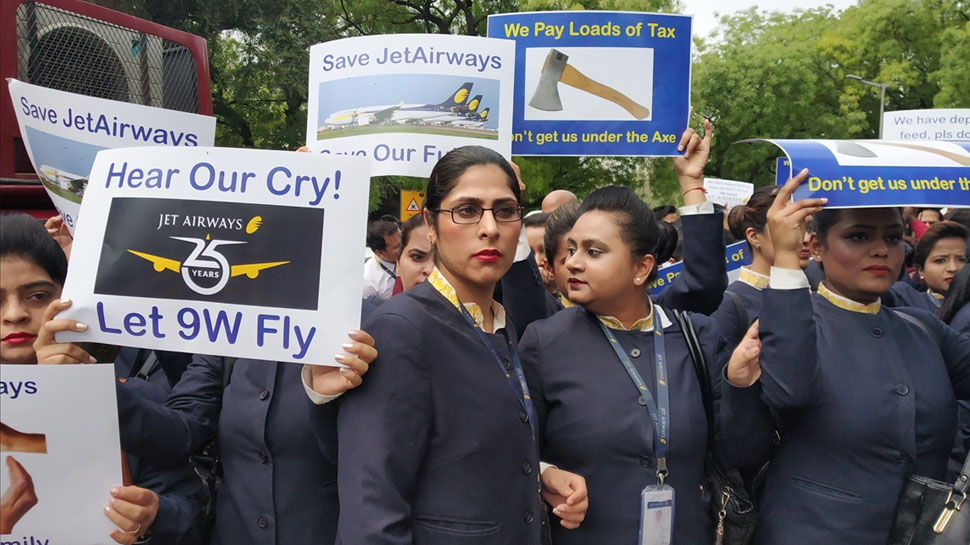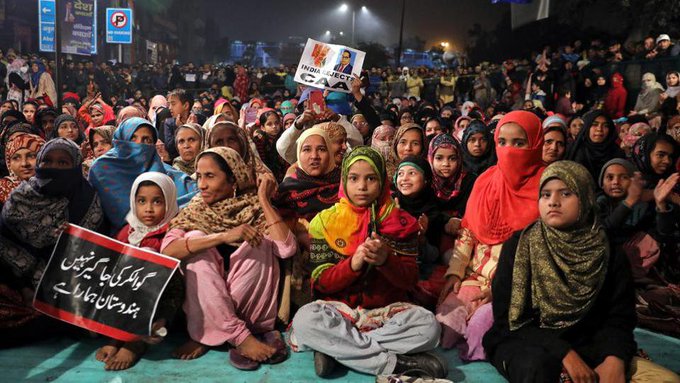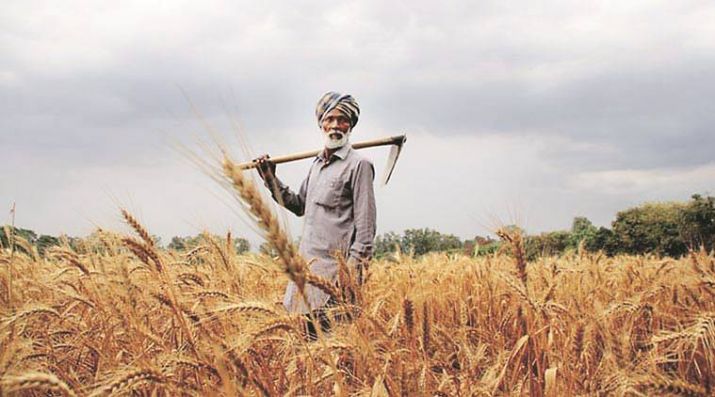COMMENTARY
In this brief/reflexive piece, the author has looked through the agony of the Jet Airways employees, and articulated the need for a collective struggle.
Uttam a theater activist and Contributing Writer at The New Leam.

[dropcap]N[/dropcap]obody seems to be secure in our times. Farmers commit suicide; youngsters experience the agony of joblessness; and the victims of ‘development’ realize what it means to be homeless and displaced. But what about the glamour girls -the mythical air hostesses – who offer the affluent class tea and coffee at the altitude of 30,000 ft? No, they too – like the farmers and the adivasis – are insecure.
This morning as I open The Indian Express, a story captures my attention: “Hundreds of Jet employees, one plea: Who will give us jobs now?” And then, I see a picture: Young women – well-dressed, English-speaking and glamorous–crying, and protesting at Jantar Mantar in the national capital. Yes, they are Jet Airways employees.
As the Airways, because of the severe economic crisis, announced temporary suspension of its operations, its employees – from a mechanic to a senior executive, or from an air hostess to a pilot – are experiencing what seems to be our shared destiny: the absence of job security and economic stability.
See beyond the ornamentalism of glamour and beauty. The moment the crisis haunts them, you begin to hear the real story of pain and anguish. Let me quote what one of them has said:
Before joining my husband at the protest, I was at AIIMS where my mother is battling cancer. The government will keep our hope alive till polls and then the company will be shut. Whatever is being said is an eyewash.
Here is yet another employee expressing her anguish:
The company didn’t communicate anything with us. I have six members in my family. My landlord is putting pressure to pay rent. My mother is 93.
Possibly, the crisis makes us see our shared destiny. Generally, the neoliberal econmmy has transformed us into discrete/atomized warriors engaged in the struggle for the survival of the fittest. Moreover, the market has expertized in the technique of privatizing a public issue. So if I don’t have a job, it is my problem. I would be compelled to believe that I am not ‘efficient’, I don’t have the adequate ‘skills’, or I am not sufficiently ‘educated’. In other words, it is my fault. And if I am ‘privileged’ it is because of my ‘knowledge’ and ‘skills’. Hence, I need not take part in the struggle of those who are in deep crisis. Hence, so long as I have a job, my car runs faster, and my children go to a ‘good’ school, I can afford not to see the agony of the farmers, the crisis of unemployment confronting the youth, and the collapse of rural economy and informal sectors. No solely that. I can ignore the sites of protest – say, the phenomenon called Jantar Mantar; and with absolute indifference I can say that those who protest are the losers.
Yes, in this age of indifference and isolation we have dissociated ourselves from the shared public issue. However, at the moment of crisis when the issues relating to economic insecurity, uncertainty and joblessness shatter us, we realize that we are on the same boat.
Yes, the Jet Airways employees – pilots, air hostesses and engineers, this is the time for you to realize that you cannot escape; the market makes you equally insecure and vulnerable. Yes, you need to understand that your struggle has to be linked with the struggle of the farmers and the youth.
Well, at the altitude of 30,000 ft, as an air hostess, you smile, greet the passengers, speak English, and serve coffee and snacks, you look like an ‘angel’ – free from the dust of Jantar Mantar. However, today you are realizing that this is an illusion. Today you are like the farmer from Gujarat, the adivasi from Chattisgarh, and the student from Kashmir.














